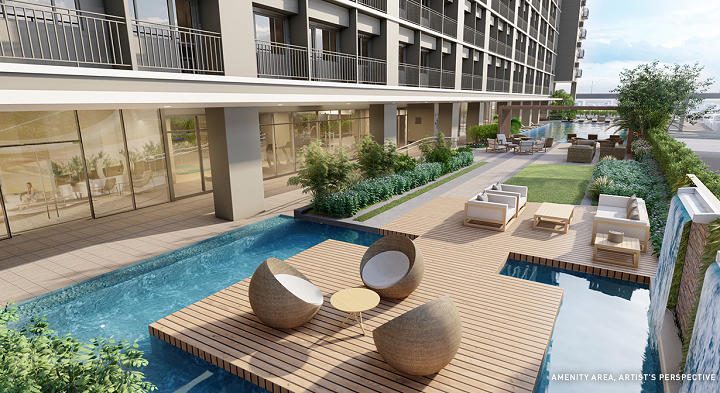As climate change continues to impact the frequency and scale of extreme weather conditions worldwide, many steps must be taken to lessen the impact of these natural calamities in order to prevent the loss of life, livelihood, and infrastructure.
With safety as a priority in developing each of its communities, SM Development Corporation (SMDC), the largest and fastest-growing real estate company in the Philippines, remains committed to disaster resilience through an integrated approach to property design.

By keying in on social connectedness and sustainability, SMDC creates developments that provide a wide range of comforts and conveniences to its homeowners so they can live safer and better.
Future Proofing the Filipino Home
Each project is the product of thorough area studies, including flood, traffic, geo-resistivity, and soil, and built with pioneering technology, protective materials, and other environmentally-friendly practices to mitigate disaster risk and minimize environmental impact.
Communities are at the heart of every SMDC development. As a property developer, it takes measured steps to safeguard its communities from severe natural events. By continuously evolving to meet the growing homeowner needs and adhering to well-defined resilience standards, SMDC creates homes that can withstand the threat of natural disasters, with each development standing as a testament to its commitment to long-term sustainability.
In its development in Cainta, SMDC’s Charm Residences has built a detention tank that will be able to hold approximately 100,000 liters of water. During storms, the detention tank will temporarily store rainwater to reduce the flood risks not only in the property but in its neighboring communities.
Other SMDC developments integrate the topography of a site’s natural surroundings to mitigate the occurrence of harmful weather events. For Vine Residences in Novaliches, portions of the structure were suspended from the site’s soil grade – which not only preserves the trees and vegetation present in the area, but also incorporates a natural defense against flooding and corrosion.
Communities that champion environmental conservation
Research points to half of the world’s population residing in cities with projections leading to a likely increase to 70% in the next 20 years . These developments contribute to higher air pollution, heat island effects, and the loss of green space, which also leads to an increase in morbidity and premature mortality in people .
To offset the personal and environmental impact of rapid urbanization, SMDC has taken the lead in creating integrated communities that provide easy access to essential goods, services, livelihood, recreational venues, and transport hubs. These master-planned developments are the product of a holistic approach to addressing climate change. By placing daily needs close to residents, this reduces car dependency which is one of the top ways to reduce one’s carbon footprint .
The abundance of green space is another key consideration that goes into the design of SMDC properties. Situated within each development are amenity areas rich in greenery and open space, providing residents with avenues for recreation and wellness without having to leave their homes. These areas help minimize the urban heat island phenomenon where infrastructure absorbs and re-emits the sun’s heat – a prime example of how design solutions highlight SMDC’s commitment to sustainability.
For SMDC, sustainability entails more than just green living. Encompassing environmental, societal, and social pillars, sustainability is a concept that not only affects the environment, but also the safety, health, and productivity of a structure’s occupants and their immediate communities.
By making sustainable design safe and accessible, SMDC enables more homeowners around the country to rest assured in the event of severe weather conditions. Through concentrated efforts made to reduce carbon emissions, energy, and waste, SMDC aims to address the larger issues of global warming and climate change – building a nation of resilient communities now and in the generations to come.

